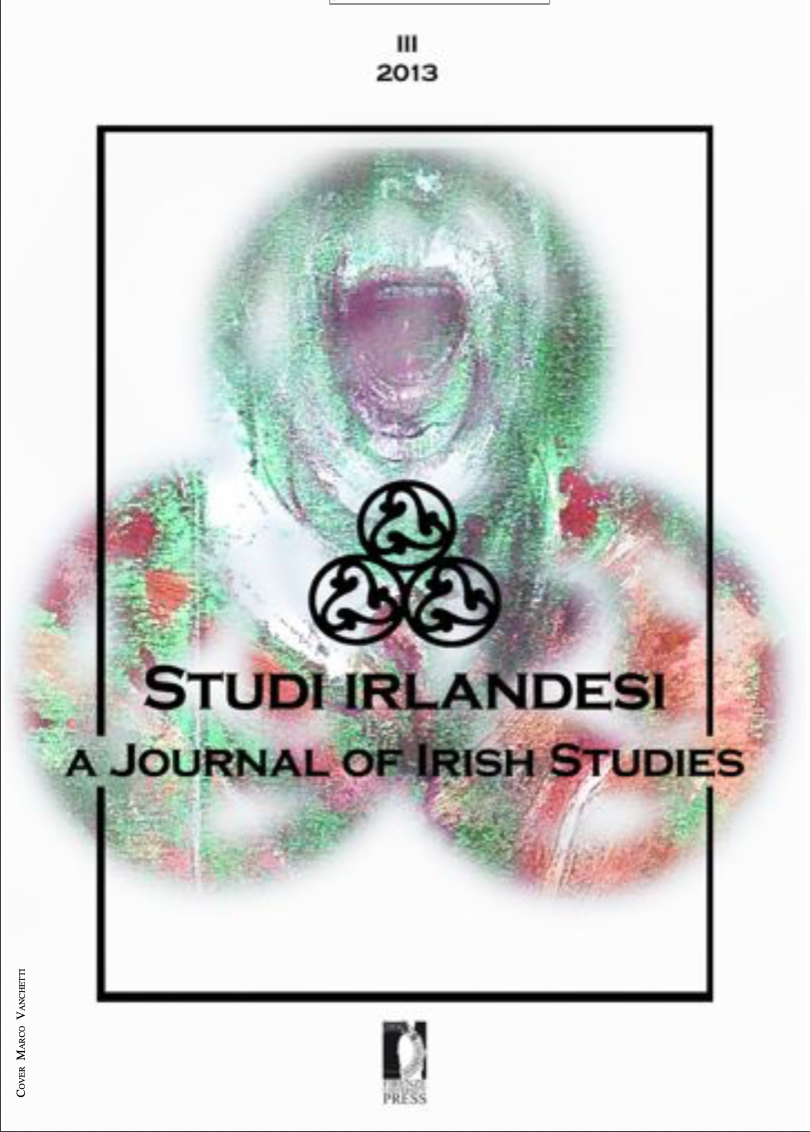Pubblicato 2013-12-30
Come citare
Abstract
Protestant Mojo remembers his teens in 1970 Belfast when he made friends with Catholic Mickybo. Yet their friendship was brought to an end after the murder of Mickybo’s father by UDA men, which shows that sectarianism does not spare children. This play borrows many techniques from Brechtian epic drama that the playwright transposes to a new context. In the written version of the play, this neo-Brechtian use of dramatic devices is also conveyed through the absence of some typographical elements which particularly stands out in the dialogues. McCafferty obviously rejects the typographical norm that should be abided by when writing. We consider this overt ex-centricity on McCafferty’s part as an aesthetic act of resistance to denounce the Troubles, violence and its cycle of repetition. The playwright aims to use neo-Brechtian techniques so as to underline the post-colonial dimension of his play and the need to get away from sectarianism. In this respect, the play becomes didactic.


